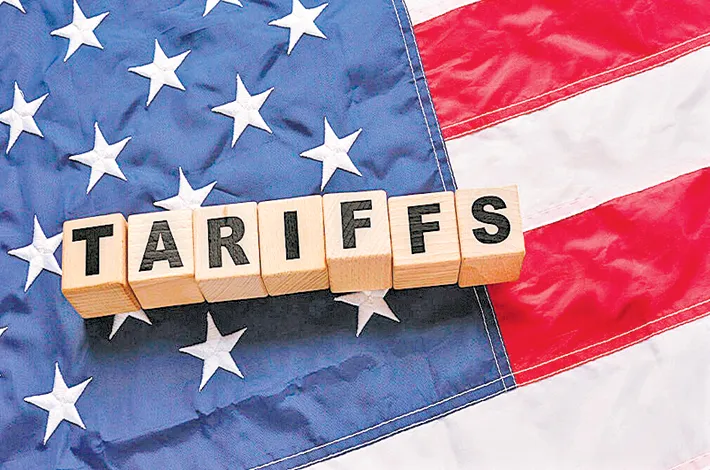US tariffs: Overview & global reaction
08-04-2025 12:00:00 AM

Metro India News | hyderabad
US President Donald Trump’ recent announcement of a series of reciprocal tariffs on various goods from countries including India, China, Japan, and South Korea is considered to be part of his “America First” agenda. It is supposed to be aiming to address trade imbalances and perceived protectionist practices from these nations, particularly India.
Specifically, the tariffs included a baseline of 10% on all imports, with higher rates for specific countries. Responses from global leaders varied; China termed the tariffs “unilateral intimidation” and prepared for possible countermeasures, while the European Union expressed collective disapproval. Overall, these tariffs fostered a global trade conflict with far-reaching implications for international commerce and regional economies.
Global trade relationships may be restructured as nations seek alternatives amid escalating tariff wars. This has been seen as a strategy to encourage local manufacturing at the expense of international partnerships, leading countries to reconsider their trade strategies.
The economic implications of these tariffs on India could lead to a substantial GDP impact, heightened pressure on sectors reliant on exports, and potential currency volatility. Analysts predict a potential $31 billion impact on India’s GDP due to these tariffs. India’s exports, particularly in sectors such as textiles, pharmaceuticals, and agriculture, may see significant downturns, as the increasing costs of tariffs render them less competitive in the global market.
This could reduce foreign revenue significantly, leading to a widening trade deficit. The higher competitive pressure stemming from increased tariffs may lead Indian Small and Medium Enterprises (SMEs) dependent on U.S. exports to struggle, potentially triggering job losses and production slowdowns, particularly in the textile and electronics industries. Prolonged trade tensions could deter foreign direct investment (FDI) in affected sectors.
Firms may seek stability before committing resources, leading to an innovation slowdown and reduced competitive edge for Indian industries internationally. Countries reliant on exports to the U.S., such as Japan and South Korea, may experience knock-on effects due to reduced market demand, likely leading to economic contractions or realignments in trade partnerships, as they devise strategies to mitigate impacts.
(An analysis by Brickwork Research)








